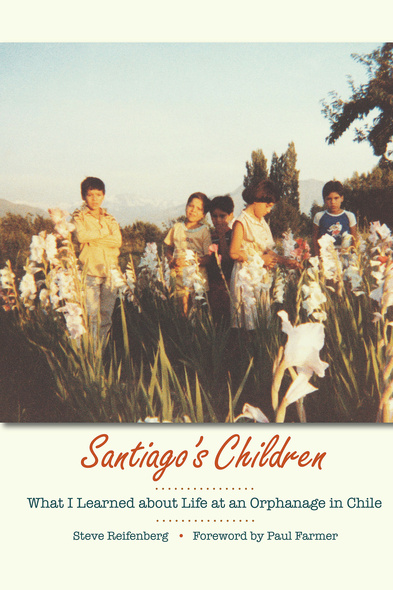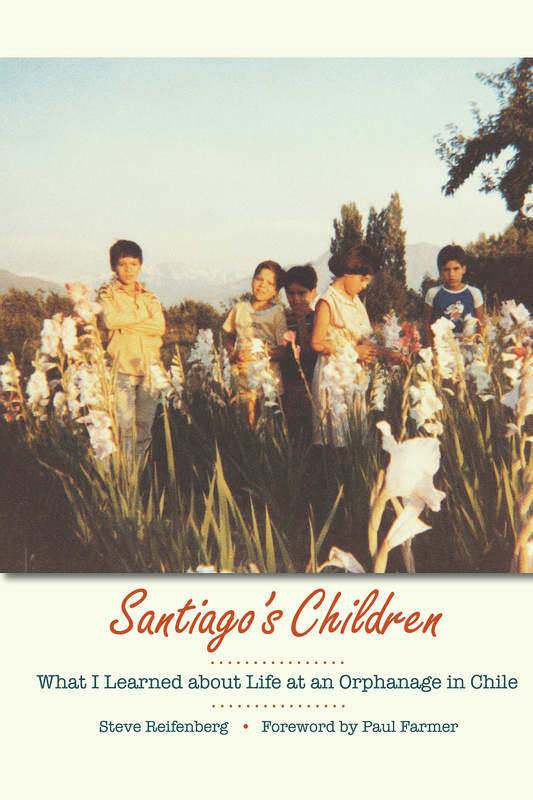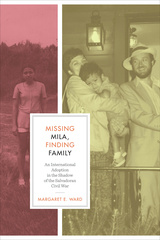Santiago's Children
What I Learned about Life at an Orphanage in Chile
Runner-up, Bronze Medal, Independent Publishers Book Awards: Memoir/Autobiography Category, 2009
Unclear about his future career path, Steve Reifenberg found himself in the early 1980s working at a small orphanage in a poor neighborhood in Santiago, Chile, where a determined single woman was trying to create a stable home for a dozen or so children who had been abandoned or abused. With little more than good intentions and very limited Spanish, the 23-year-old Reifenberg plunged into the life of the Hogar Domingo Savio, becoming a foster father to kids who stretched his capacities for compassion and understanding in ways he never could have imagined back in the United States.
In this beautifully written memoir, Reifenberg recalls his two years at the Hogar Domingo Savio. His vivid descriptions create indelible portraits of a dozen remarkable kids—mature-beyond-her-years Verónica; sullen, unresponsive Marcelo; and irrepressible toddler Andrés, among them. As Reifenberg learns more about the children's circumstances, he begins to see the bigger picture of life in Chile at a crucial moment in its history.
The early 1980s were a time of economic crisis and political uprising against the brutal military dictatorship of Augusto Pinochet. Reifenberg skillfully interweaves the story of the orphanage with the broader national and international forces that dramatically impact the lives of the kids. By the end of Santiago's Children, Reifenberg has told an engrossing story not only of his own coming-of-age, but also of the courage and resilience of the poorest and most vulnerable residents of Latin America.
This book is a gem and offers a wonderful roadmap for students of any age who are thinking about engaging in a complicated world. It should make its way to every university career counseling office across the country.
Urgent and moving . . . The narrative fairly leaps from the pages when the political struggle comes into view. . . . The tale is amazingly hopeful, in spite of, or because of, the struggles in question. . . . This is a story of Chile we will not forget.
Steve Reifenberg lives in Santiago, Chile, where he is the Director of the Regional Office of Harvard University's David Rockefeller Center for Latin American Studies. He has worked on international education and international conflict resolution for nearly two decades.
- Foreword by Paul Farmer
- Acknowledgments
- Chapter 1. Visions of a Family Farm
- Chapter 2. The Arrival
- Chapter 3. Spanish Lessons
- Chapter 4. Olga and the Hogar
- Chapter 5. Not as Imagined
- Chapter 6. Summer
- Chapter 7. More Spanish and Other Lessons about Chile
- Chapter 8. Politics
- Chapter 9. The Pacific Coast
- Chapter 10. The End of Summer
- Chapter 11. A New School Year
- Chapter 12. Professional Conversations
- Chapter 13. On Being a Teacher
- Chapter 14. Noisy and Complicated
- Chapter 15. The Farm Revisited
- Chapter 16. Donors, Demons, and Dentists
- Chapter 17. Marcelo
- Chapter 18. An Unexpected Journey
- Chapter 19. A Home on Tupungato Street
- Chapter 20. Catholics, Mormons, and Evangelicals
- Chapter 21. Boys, Babies, and Biters
- Chapter 22. The University
- Chapter 23. Winter in a New Neighborhood
- Chapter 24. Sebastián
- Chapter 25. Explaining a Few Things
- Chapter 26. You're Going to Do What?
- Chapter 27. Groping in the Dark
- Chapter 28. God Will See Us Through
- Chapter 29. The End of the Road
- Chapter 30. The Days of Waiting
- Chapter 31. The Visit of the Gringos
- Chapter 32. Searching for Something
- Chapter 33. Taking Leave
- Epilogue






